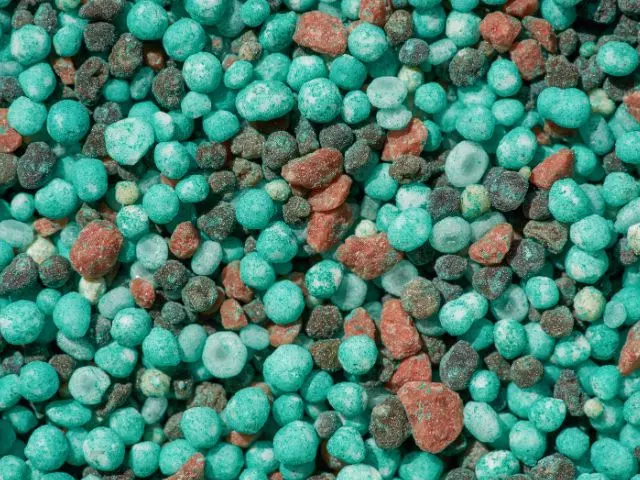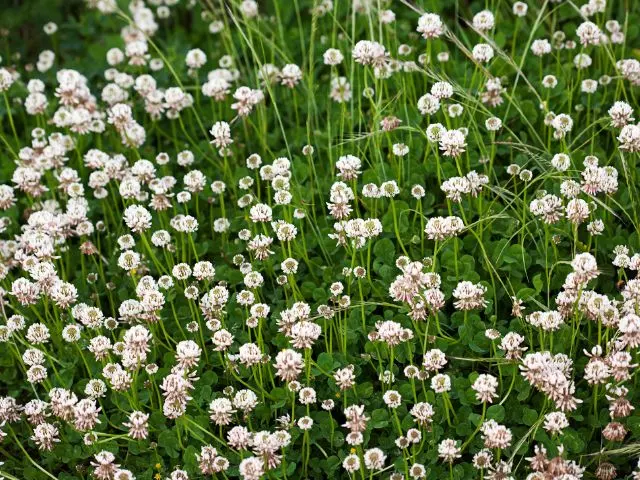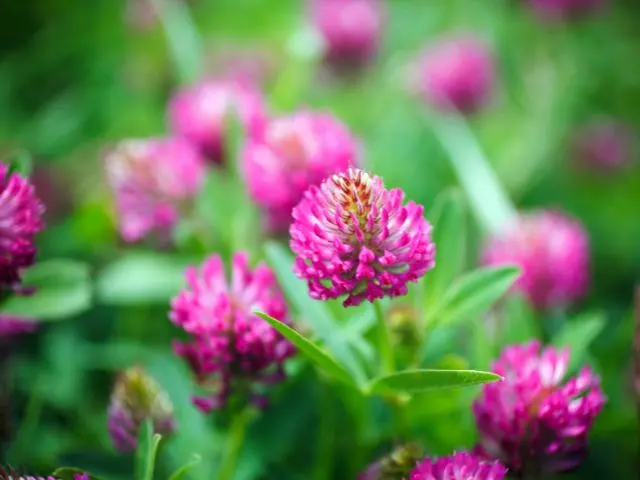Clover is a legume that grows easily in any garden. Many species of clover produce yellow, white, or pink flowers. Clover does not usually require nitrogen-rich fertilizer because it can obtain it from the atmosphere. Continue reading to learn all about clover fertilizer in this article.
Having clovers in the garden is beneficial to the soil because it helps fix nitrogen and also suppresses weed growth. In addition, clovers tend to attract different animals to the garden such as birds and fawns. The University of Cambridge explains in their article the benefits of white clover.
Table of Contents
What Kind of Fertilizer for Clover
As I mentioned, the clover does not need a nitrogen fertilizer because it can obtain nitrogen from the atmosphere. First, the clover will get the maximum nitrogen from the soil and if it does not get it, it will get the necessary nitrogen from the atmosphere. Therefore, a low or non-nitrogen fertilizer for clover should be used.
For example, an NPK 0-20-20 fertilizer is very good for clover. NPK stands for Nitrogen, Potassium, and Phosphorus. A 0-20-20 fertilizer will have 0% Nitrogen, 20% Potassium, and 20% Phosphorus, the rest are other nutrients and minerals. You can also use an NPK 0-0-28 fertilizer. The idea is to use a nitrogen-free fertilizer for clovers.
It is important to know the pH of the soil before applying clover fertilizer. The vast majority of clovers grow well in soils with a pH between 6 and 7. I recommend reading our article on how to measure soil pH. For the fertilizer to work properly you must make sure that the pH parameters are met.

Best Fertilizer for Clover
The best fertilizer for clover will be one that does not contain nitrogen or is very low in nitrogen. Remember that clover can obtain nitrogen from the atmosphere, so there is no need to add extra nitrogen. NPK fertilizers 0-20-20 or 0-0-28 are very good for all varieties of clover.
For the fertilizer to act correctly on the clover you must make sure that the pH of the soil is between 6 and 7. For example, if you have a pH higher than 7 you can increase the acidity of the soil by adding sulfur. If the soil is too acidic you should use lime to raise the pH.
If you cannot get a non-nitrogen fertilizer for clover, you can use a low-nitrogen fertilizer such as NPK 6-24-24. I recommend not using fertilizers with too much nitrogen because the excess is also bad for the clover. Read the manufacturer’s instructions to apply the fertilizer correctly, the indications are different for each manufacturer.
- ANTLER KING | Bigger Bucks - Healthier Deer. The Leader in Wildlife Nutrition Products, Food Plots, Minerals and Attractants
- CLOVER FUEL | Supercharge your food plots with all-new Clover Fuel. Clover Fuel will help your food plots grow faster, grow thicker and last longer!
- LEGUME SPECIFIC FERTILIZER | Designed specifically to enhance the performance of any legume-based food plot including: Clover, Soybeans, Alfalfa & Peas. Will not burn plants as granular fertilizer can
When to Fertilize Clover
The best time to fertilize clover is early spring and late fall. It is important to avoid fertilizing clover on extremely hot days as this can damage the plant. Depending on the type of clover fertilizer you use, you should fertilize more or less often. For example, you can use a slow-release clover fertilizer and only apply it in the spring.
There are liquid, foliar, and granular fertilizers that are usually slow-release. Choose the fertilizer that best suits your needs according to soil analysis and clover condition. Normally I use a slow-release fertilizer to fertilize the clovers in my garden.
Do not fertilize clover in winter or during the summer. Remember that the best time to fertilize clover is early spring and late fall. Fertilizing in winter will be a waste of fertilizer because the clover will not use it. Always read the fertilizer manufacturer’s directions.

How to Fertilize Clover
Each fertilizer has different indications on how to apply it on the clover, so you should always read the manufacturer’s instructions to apply the fertilizer correctly and that the nutrients are used to the maximum.
A liquid fertilizer should be diluted in water and then applied in the afternoon or evening to prevent it from evaporating quickly in the heat of the day. On the other hand, slow-release granular fertilizers should be spread on the clover and then watered to be better absorbed.
As always, it is best to read the manufacturer’s instructions. Some liquid fertilizers for example do not need to be diluted and that is why it is important to always read the directions. There are also foliar fertilizers for clover, but they are hard to find.

Final Conclusions
The clover in the garden looks very beautiful and gives the possibility to attract different species of animals to admire and contemplate. Fertilizing the clover will help this plant to grow and develop for many years in the garden.
I hope this article about fertilizer for clover has cleared all your concerns. I recommend you to read our article about Oxalis triangularis, a very beautiful clover.

